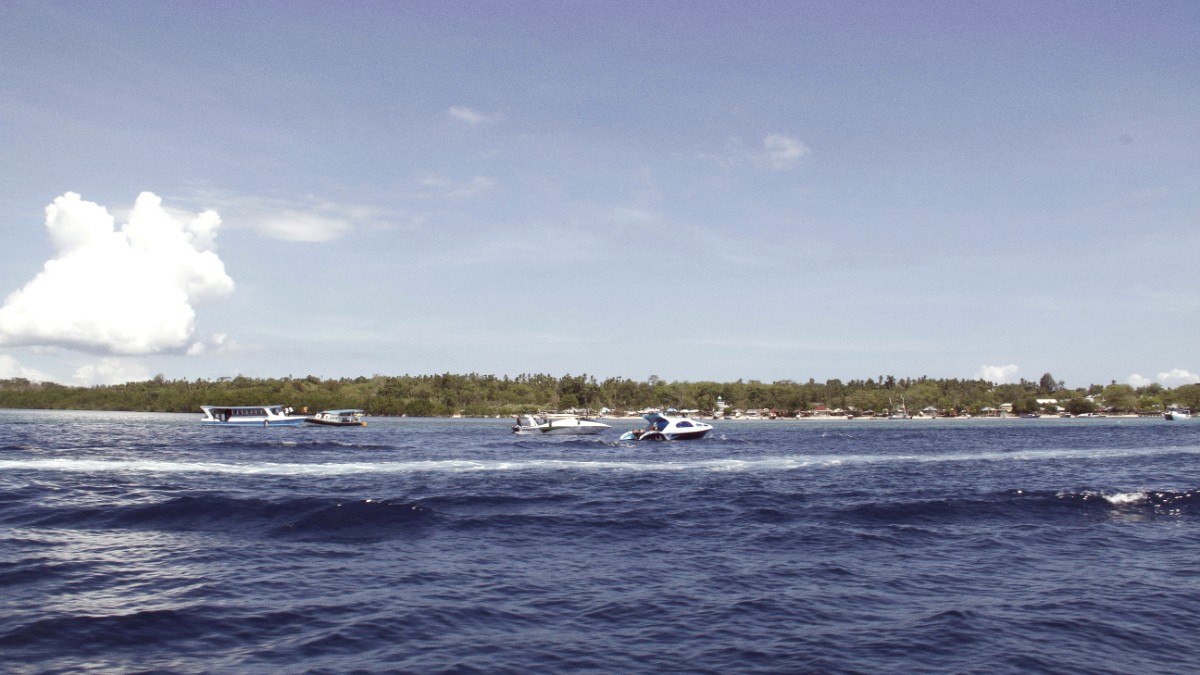
Sulawesi, Indonesia
Manado has a tropical climate, with consistently warm temperatures throughout the year. Weather patterns divide into two main seasons, each with distinct advantages for travelers.
The Dry Season spans from May to October. This period has the most sunshine and the least amount of rainfall, making it a prime choice for outdoor activities. If you plan extensive diving or snorkeling in Bunaken National Marine Park, this season offers the clearest visibility and the calmest sea conditions. Temperatures during these months range from 24°C to 31°C (75°F to 88°F), and humidity levels are generally lower, making outdoor exploration more comfortable. Days are typically bright, with clear blue skies, great for photography and long hours spent outdoors.
Manado's High Season usually comes between June and September, aligning with school holidays in many Western countries and offering optimal diving conditions.
The Shoulder Season includes May and October. The Low Season is from November to April.
More Visitors
Optimal diving conditions.
Higher prices for accommodation and flights. Dive sites and popular attractions will likely see more visitors. Booking well in advance matters.
Fewer Crowds
Good weather, often with fewer crowds. Prices for travel and lodging can be more competitive.
Occasional rain showers, notably in October. Still, marine activities are enjoyable.
Lower Prices
Significantly lower prices for accommodation and tours. Fewer tourists mean a more relaxed atmosphere and uncrowded sites. Landscapes appear lush and green after rains.
Higher chance of rain might change some outdoor plans. Rougher seas can occasionally impact boat trips to Bunaken or cause cancellations.
May to October consistently offers the best visibility and calmest waters across Bunaken National Marine Park. Marine life remains abundant year-round, but these months are peak conditions.
The dry season, from May to October, is preferable for clearer trails and better views. This holds true for treks around Mount Mahawu and Mount Lokon, where paths can become muddy during heavy rain.
Festivals and local events occur throughout the year. Check specific dates for events.
Events include Chinese New Year celebrations at Ban Hin Kiong Temple.
Local harvest festivals offer unique cultural insights regardless of the season.
Cultural experiences are available year-round, with specific dates for major events.
You find unique cultural insights regardless of the season.
Requirements can change, so always verify the latest information with the Indonesian Ministry of Foreign Affairs or the nearest Indonesian embassy or consulate before your trip.
Nationals from over 160 countries, including most ASEAN member states, qualify for a visa exemption. This exemption allows stays of up to 30 days for tourism. This visa exemption is non-extendable, and you cannot convert it into other visa types. This option is good for short, direct tourism visits.
This electronic Visa-on-Arrival option streamlines your arrival. Nationals of certain countries (including Australia, China, India, Japan, South Korea, United States, United Kingdom) can pre-apply online through the official Indonesian Immigration website, Molina.imigrasi.go.id. Applying for an e-VOA before you travel saves time upon arrival at the airport. This digital option also helps reduce potential queues at immigration counters.
The official currency of Indonesia is the Indonesian Rupiah (IDR). You will encounter prices ranging from thousands to millions of Rupiah, so familiarize yourself with the denominations. Major banks and money changers are available in Manado city, notably around the main commercial areas and shopping malls. ATMs are widely available across Manado, accepting most international cards (Visa, Mastercard). Inform your bank of your travel plans beforehand to avoid card issues. Carry small denominations of Rupiah for local markets, street food, and small transport payments.
| Travel Style | Accommodation (IDR) | Total Daily (USD est.) |
|---|---|---|
| Budget Traveler | 150,000 - 300,000 | $19 - $42 |
| Mid-range Traveler | 300,000 - 800,000 | $42 - $115 |
| Luxury Traveler | 800,000+ | $115+ |
Your well-being is a top priority during any trip.
Yellow Fever vaccination if arriving from a country with risk.
Hepatitis A, Hepatitis B, Typhoid. Consider Rabies if close animal contact. Japanese Encephalitis for rural agricultural areas.
Ensure routine vaccinations are current (Measles, Mumps, Rubella; Diphtheria, Tetanus, Pertussis; Varicella).
Traveler's Diarrhea:
A common issue. Drink only Bottled water or water purified with a LifeStraw Go Water Filter Bottle if tap water is your only option. Avoid ice from questionable sources and eat well-cooked food. Wash hands frequently.
Dengue Fever: A mosquito-borne illness. Use Repel 100 Insect Repellent (with DEET or Picaridin) day and night. Wear long sleeves and pants, especially at dawn and dusk. Malaria risk is generally low in Manado city and Bunaken Island, but higher in some remote, rural parts. Consult a medical professional for anti-malarial medication if traveling to remote areas.
Sunburn/Heatstroke: Use high-SPF Thinksport Mineral Sunscreen SPF 50+, wear a Wide-brimmed hat, and stay hydrated. Cuts/Scrapes: Clean and treat promptly with antiseptic. A Compact First Aid Kit is useful.
RSUP Prof. Dr. R.D. Kandou Manado is a major public hospital. Siloam Hospital Manado is a private option, often with better facilities and English-speaking staff.
Widely available for over-the-counter medications and basic health supplies.
Tap water is generally not safe to drink. Rely on bottled water. Choose street food stalls with good hygiene and high customer turnover.
Manado is generally safe for tourists. Petty crime, like pickpocketing and bag snatching, can occur, specifically in crowded markets or tourist areas. Stay vigilant, especially at night. Avoid walking alone in isolated areas after dark. Use reputable ride-sharing services or taxis when returning to your accommodation at night. No specific "no-go" neighborhoods exist, but general caution is always wise.
Links to further resources for health and safety are here:
LifeStraw - Consumer site for water filtration products.
Adventure Medical Kits - First aid supplies for travelers.
Pacsafe - Anti-theft bags and travel security products.